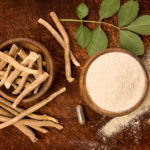Ginkgo To Sharpen Memory But Bad For Blood Pressure?
I wanted to start taking a ginkgo supplement to improve my memory, but my pharmacist said that it might raise my blood pressure. I do have hypertension controlled by medication. What should I do?
Andrew Weil, M.D. | August 15, 2008

First of all, taking a supplement that contains only ginkgo won’t raise your blood pressure. If you are concerned about your memory, I suggest a trial of this traditional herbal preparation made from the leaves of the ginkgo tree (Ginkgo biloba). Ginkgo is the ancient and once rare Chinese tree now planted on many city streets throughout the world. Extracts of the leaves have attracted much attention from researchers because of their ability to increase blood flow to the brain. Some clinical evidence suggests that ginkgo can be useful in slowing the progression of early Alzheimer’s disease and age-related dementia.
Although the latest report on ginkgo’s effects concluded that it may not measurably alter the course of senile dementia or significantly affect cognitive function, the study was a short one – it lasted only six months – and included only 176 people with mild to moderate dementia. It was published online in June 2008 by the International Journal of Geriatric Psychiatry.
We’ll know a lot more about whether or not ginkgo can help prevent or slow Alzheimer’s disease, age-related cognitive decline, and functional disability when an eight-year study sponsored by the National Center for Complementary and Alternative Medicine is completed in 2009. This includes more than 3,000 volunteers nationwide. (The researchers will also look at whether ginkgo can reduce the incidence of cardiovascular disease.)
If you want to try ginkgo for memory enhancement, I recommend taking 40 mg of a standardized extract with a ratio of 24% ginkgo flavone glycosides and 6% terpene lactones three times a day with meals. Give it a two-month trial.
High doses of ginkgo may occasionally cause side effects including headache, nausea, gastrointestinal upset, diarrhea, dizziness or allergic skin reactions. GI effects are most common and are less likely to occur if you take ginkgo on a full stomach.
Andrew Weil, M.D.









